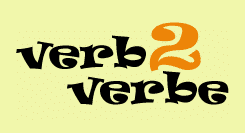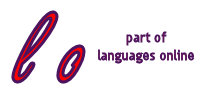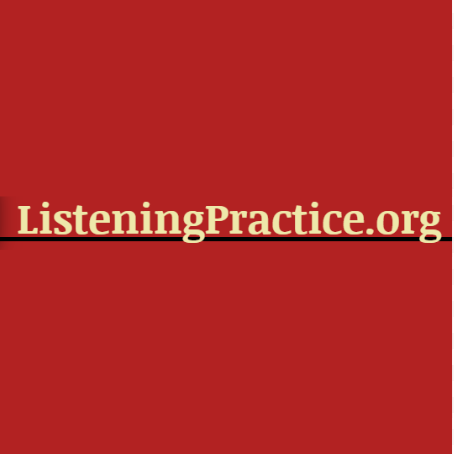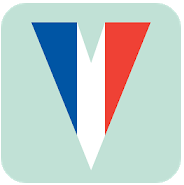
18 French Conjugation Practice Resources
What is it about verbs that causes so much friction?
First of all, there are just so many of them, and even after filling your word bank with a variety of verbs, you still have to remember all the different conjugations for every single one!
Thankfully, there are plenty of French conjugation practice resources at your fingertips to patch up your relationship with French verbs. By using them, you can be sure to take things to whole new, deeper level!
Contents
- Why Practice with French Conjugation Exercises?
- How Do You Memorize French Conjugations? 5 Tips!
- The Top 18 Websites for French Conjugation Exercises
Download: This blog post is available as a convenient and portable PDF that you can take anywhere. Click here to get a copy. (Download)
Why Practice with French Conjugation Exercises?
- Visuals help you memorize. There are many types of learners. For instance, I’m a visual learner. I can recite conjugations with my class and sing fun French songs all I want, but if I never see those conjugations in front of me, the information doesn’t stick in my brain. Seeing verb conjugations over and over again in French exercises will help you memorize them.
- Mix things up! Before now, you may have only been looking to your French textbooks for conjugation exercises. Textbooks can be a little stiff and boring, though. Trying new ways of practicing your French can keep you absorbed in the material. If you’re not genuinely interested in the language, you’re way less likely to keep up with your studies.
- Practice makes perfect. This saying is a cliché for a reason. If you want to overcome your fear of the countless French verb conjugations, you should use exercises to pratiquer (practice). Everyone should practice … tu pratiques, je pratique, nous pratiquons tous! (You practice, I practice, we all practice!)
- It’s all in one place. Once again, yes, you can always turn to your textbooks for French conjugation exercises. However, I don’t know about you, but I sometimes get confused when I spend too long flipping through a textbook. When using websites, all the information is in one place. They’re typically much easier to navigate than giant textbooks.
How Do You Memorize French Conjugations? 5 Tips!
Memorizing all the French verb conjugations can see like a time-consuming task, and it may seem like an insurmountable challenge for learning French.
With these five tips, however, you can become the French verb conjugation master of your dreams!
Study One Tense at a Time
When you first come across French verb tenses on a website or in a textbook, they’re often organized into nice little tables. Upon deeper analysis, learners discover that each row and column in the table shows a given verb in a particular verb tense—each with its own conjugation and usage rules.
How daunting!
But don’t let it be.
The old adage “slow and steady wins the race” holds particularly true for learning French verb conjugations.
Rather than trying to learn all of the verb tenses and all the verb conjugations at the same time, focus on each tense individually.
For example, it’s common for learners to start with the French present tense, and there’s good reason for that!
It’s the most useful and common for beginner learners.
Delve into the tense’s regular verb patterns and irregulars, and only move onto the next once you’re comfortable. That way, you won’t get all the tenses confused.
Learn French Verb Conjugations in Context
Remember those tables I told you about? Not only are they daunting, but they’re completely out of context.
In other words, you’ll never have to recite the conjugations of those tables when you’re actually speaking the French language.
Instead, you need to see these verb conjugations in context.
The best way to do that is to ravenously consume French-language content. Watch TV shows and movies, read books and blogs and don’t forget about having conversations with French native speakers.
As you do these things, analyze the verb tenses being used and think about why they’re being used. For example, you may choose to highlight verb conjugations in a book or article you’re reading in French to be able to analyze how the verbs in a TV show dialogue contribute to the meaning of the sentence.
Of course, this is easier said than done. It can be difficult to find content (especially video content) that uses the specific verbs you want to learn. And when you finally do, there’s no guarantee that it’ll be at your level.
The solution to these issues is to find a program that helps you do the grunt work. FluentU is one way to avoid the pitfalls of authentic learning.
FluentU has many French videos by and for native speakers of the language, like music videos, movie and show clips, commercials, news segments and more. You can search the content by specific words, allowing you to see videos that use a verb you’re studying with ease.
The program also lets you click on any word in the subtitles to see its definition and text and video examples. This will allow you to check the grammar and meaning of verbs in the context of any video that you watch on FluentU. You can also turn any word into a flashcard, for later study with personalized quizzes.
FluentU makes it easier to use authentic context to study verbs (and other French language concepts). Plus, you can install the iOS or Android app on your mobile device and take the learning wherever you are.
Just remember: Whatever tools you use to study French verbs, context is key.
Master the Sounds First and the Spelling Later
Do you want to know the truth?
Well, a lot of French verb conjugation endings sound the same.
For example, all the verb conjugations for the present tense of regular -er verbs sound the same with the following subjects:
- je parle (I speak)
- tu parles (you speak)
- il parle (he speaks)
- elle parle (she speaks)
- ils parlent (they speak, masculine)
- elles parlent (they speak, feminine).
In fact, they’re all silent letters!
That means you just need to know how to say this form of the verb as well as the nous parlons (we speak) and vous parlez (you all speak), and you’ve mastered this group of verbs!
Best of all, this doesn’t only happen in the present tense.
There are many other verb tenses where what’s said is exactly the same for multiple subjects, but the spellings are quite different. Master the sounds of these tenses, and the spelling can follow later!
Use French Verb Tenses Actively
In the same way that French verb tenses need to be seen in context to be memorized and understood, you should also use verb tenses actively so that you can use them without thinking about it.
But don’t try to use the verb tenses all at once!
You should be intentional in your verb tense usage in practice exercises so you can hone in on them.
For example, if you’re working on the past tense, do an activity where you have to recount a story in the past.
You may choose a childhood memory or an amusing story that happened not too long ago.
As you write or say this story, pay attention to your usage of the past tense.
Do you need the passé composé (the perfect tense) or the imparfait (the imperfect past)? Which endings do you need to use for each conjugation? The more you do targeted practice, the better you’ll become!
Look for Commonalities
Considering French has over 20 verb tenses and moods, all with different rules for conjugation, it can seem like all the endings mix together and it’s impossible to tell them apart.
Actually, this may not be an all-around bad thing.
Otherwise said, many French verb conjugations overlap, meaning they have the same endings as other tenses or as other verbs.
For example, if you know the verb tense endings for the imparfait, you know the endings for le conditionnel.
They’re the same endings!
The only difference is the form of the verb preceding the conjugation pattern.
Even within their respective tenses, verb conjugations share the same endings.
For example, regular -er verbs and -re verbs in the present tense have the exact same endings for the nous (we), vous (you all) and ils/elles (they) forma.
In fact, so do regular –ir verbs in the present tense, with an added -iss- in between the stem and the verb ending.
In fact, even irregular verbs have groups of shared endings with other irregular verbs that conjugate similarly. For example, venir (to come), tenir (to keep) and devenir (to become) have virtually the same conjugation patterns, albeit some letters of their stems.
Learn one, and master them all!
The Top 18 Websites for French Conjugation Exercises
Here are 18 sites that will help you become more proficient in conjugating French verbs.
Each website and app has its own strengths, and each one appeals to different types of learners, regardless of what their learning goals are.
Quizlet
After years of studying French in high school and college classrooms, I graduated and wanted to continue studying on my own.
Quizlet was the first resource my mother, a French teacher of 20 years, recommended to me for French conjugation exercises.
Quizlet has many resources for French learners, my favorite being its user-made conjugation exercises. Search “French conjugations,” then click “Study sets” at the top of the page. You’ll be taken to numerous French conjugation lists made by fellow Quizlet users.
If you’re looking for a specific type of conjugation, type something more specific into the search bar, such as “French conjugations conditionnel” (conditional French conjugations) or “French conjugations passé simple” (simple past French conjugations).
Each study set has multiple ways for you to learn the verb conjugations.
You can look at the list of terms, go through digital flashcards, write out words, type what you hear, take a test and even play the matching or gravity games.
I also recommend making use of the audio feature of Quizlet.
Looking at a list of verbs, you can click on the words to hear correct pronunciations. I find this feature very helpful, considering the French language is littered with silent letters!
Learn from as many users’ exercises as you want, or create your own!
Making your own exercises for a set of verbs and conjugations might be the best way to study for a real-life test.
Français interactif
Français Interactif (Interactive French) is the University of Texas at Austin’s French program. I love the setup of the program’s verb practice page because it’s simple but effective.
There are two columns:
On the left, types of verbs, everything ranging from “-er verbs” to “pronominal verbs.” (Confession: I didn’t even know what a pronominal verb was until I used this resource. Don’t judge me.)
On the right is a list of your conjugation options, from “futur” (future) to “subjonctif passé” (past subjunctive).
Then you combine your verb and conjugation types.
Learn plus-que-parfait (pluperfect) conjugations of major irregular verbs, imparfait (imperfect) conjugations of -ir verbs or impératif (imperative) conjugations of stem-changing verbs.
Once you’ve chosen your customized combination, click “apply,” and you’ll be taken to your personalized exercises. The website gives you a verb, and you have to type in the corresponding conjugation.
It’s a simple premise, but sometimes simple is best. Besides, something about learning French verb conjugations has to be simple, right?
Conjuguemos
While Conjuguemos’s setup is a little different than other sites in this post, it’s just as easy to figure out.
The site’s conjugations are split into five main categories:
- All Tenses and Moods
- Indicative Mood: Simple Tenses
- Indicative Mood: Compound Tenses
- Subjunctive Mood
- Imperative Mood
Each of the five categories has multiple sub-categories for you to narrow down your search.
Choose your sub-category, then let the games begin!
Yes, Conjuguemos has digital flashcards available like most French conjugation websites, and it even has timed graded practice. But my favorite part has to be the multitude of games and activities the site offers.
If you want to have hard copies of exercises with you to pass time on an airplane or to stay awake during a boring lecture, you can print crosswords and word searches for each sub-category. Interactive versions of those activities are also available on the computer.
You can play the frog conjugation game by yourself. In this game, you’re a frog who has to eat the correct conjugations of verbs as quickly as you can.
If you have a study buddy, Conjuguemos even has two multiplayer conjugation games, the verb battleship game and tug-o-war.
This feature is great for students who learn best when working with others. Conjuguemos is the only website on this list with exercises specifically for students working in pairs.
If games and brain teasers help you memorize verb conjugations, this website is definitely for you.
schoLINGUA
This website has a different method of organization than the others.
Instead of choosing one tense and being given multiple verbs to conjugate, you choose only one verb which you then have to conjugate into multiple tenses.
Maybe you want to check your knowledge of different ways to conjugate the verbs savoir (to know) or mourir (to die).
Type in the specific verb you want to quiz yourself on, then choose various conjugations.
You can choose from three quizzing methods:
- Intense training I (structured mode)
- Intense training II (random mode)
- Concentration game.
I love that schoLINGUA focuses on just one verb at a time.
This method helps the conjugations of different verbs stick in my brain better. When I’m thrown conjugations of various verbs, it’s easy for me to forget the answer as soon as the words disappear from the screen.
When I spend time studying one verb, though, the learning process feels less hectic and overwhelming. It also seems easier for me to recognize patterns across the various tenses that seem to settle into my long-term memory.
Language Guide
Language Guide is similar to some of the other websites on this list in a few ways.
First, you choose a conjugation category. Then the site provides you with the infinitive form of a verb along with a subject pronoun, and you must conjugate the verb accordingly.
There are two aspects of this website I really appreciate, though.
First, you can either type or speak the conjugation aloud.
This option means Language Guide not only helps you see the correct French conjugations but also helps you speak them.
This way, you learn to use correct conjugations in everyday French conversations. Remember, it’s not only important to be able to read and write correctly, but it’s also essential to speak correctly.
Second, after you type in each conjugated word, the website provides you with a sample sentence so that you can see the verb used in context.
This feature is useful because even when we’re familiar with the terms le conditionnel and l’imparfait, it’s easy to get caught up in the conjugation and completely forget when and how to use it!
Seeing a sample sentence makes the conjugation applicable to real life.
French Today
While Language Guide focuses on both visual and auditory French, French Today only focuses on audio. The company’s goal is for learners to improve their listening and speaking skills.
French Today boasts three volumes of over 10 hours of French verb audio drills, along with over 240 pages of transcripts.
The website provides some free samples of the audio drills, but if you want to dedicate yourself to this program, you do have to buy a book. The good news is that each volume is available at a reasonable price of $31.99.
No one loves spending money, but if your main goal is to improve your speaking, I recommend looking into French Today.
Buying all three volumes at once will cost you $95.97, which is still cheaper than a single textbook in many campus bookstores.
Of course, if you just want to try out French Today before dedicating yourself to the program completely, you can buy one volume at a time.
Lingolia French
Lingolia French lets you choose a verb tense from the sidebar, and then it quizzes you on conjugating multiple verbs using that tense.
For these quizzes, you either choose the correct answer from a drop-down menu or type your answer into a blank.
With both of these question formats, you see the verbs being used in sentences, which is a great benefit of using Lingolia French.
The website’s quizzes also reflect traditional classroom French tests, so if you’re preparing for an exam, give Lingolia a try. Doing so could help you get into a testing mindset.
Lingolia French is a solid resource for all French grammar. If you need a break from conjugating verbs, try exercises that target French adjectives, nouns or sentence structures.
Digital Dialects
First thing’s first: before you can enjoy the French conjugation exercises on this site, you have to enable Adobe Flash Player. Doing so is pretty simple—just click on the link at the top of the page.
My favorite aspect of the website is that everything is a game, which breaks up the monotony of studying verbs and conjugations.
Digital Dialects specializes in matching games. You’re given the conjugated form of the verb, then three options for pronouns. You then have to match the verb to the correct pronoun.
For example, when conjugating the word dire (to say), does direz match with tu, elles or vous?
As you get into the swing of things, you can try harder tests.
When conjugating the word demander (to ask), does demanderai match with vous au futur (you [all] in future tense), je au futur (I in future tense), il à l’imparfait (he in imperfect tense) or je au passé composé (I in past tense)?
My only disappointment with Digital Dialects is that of the 18 websites on this list, it’s probably the least organized. It may take you a few minutes to figure out the layout of the site. Once you overcome that obstacle, however, you may find it to be a good resource for conjugation games.
Verb 2 Verbe
To make the most of this website, you really should create a free Verb 2 Verbe account. Once you create an account, the system tracks your performance on the various exercises, so it knows which verbs you’ve mastered and which ones you haven’t.
Verb 2 Verbe provides learners with five types of exercises. Choose from the following:
- Single Verb Test
- Multiple Verb Test
- Random Test
- Vocabulary Test
- Test Over the Verbs You Know
After you select the type of test you want, choose the verb tense you want to focus on.
My favorite of the five assessments is the random test, because the system chooses five verbs you haven’t learned yet.
This way, you’re constantly learning different conjugations of new verbs. There’s always more for you to learn!
C’est facile!
C’est facile! (It’s easy!) is one of the few websites I’ve found that makes an effort to separate French conjugation exercises by the learner’s levels.
Whether you’re just venturing into the world of French language acquisition or you’ve been studying for years, C’est facile! tells you exactly where to go on the site.
Before you start practicing with the website’s exercises, consider clicking on “French verb conjugations” to review any verbs you’ve been having trouble with.
Then, click on “Practise verbs” to get started with the exercises. (Don’t worry, that spelling of “practice” is not a typo. It’s just the British spelling.)
“Complete tenses” is the best way for beginners to learn. The interactive exercise takes you through each verb individually, teaching you different tenses of the same verb.
If you’re more advanced, click on “Random verbs, tenses and forms.” This exercise randomizes the verbs and conjugations, keeping you on your toes!
Le Figaro (The Figaro)
Better known as a newspaper, Le Figaro has extensive materials available for French learners.
Aside from the fact that learners can find native French news articles and videos on their website, there’s actually an entire section that helps people learn and master French grammar.
Under the “Services” section of the Le Figaro, learners can access various tutorials and exercises related to French grammar.
In particular, there’s an extensive directory of verb types, conjugation patterns and usage rules. After reviewing these lessons, learners can test their conjugation skills with dozens of exercises.
Some of these exercises are multiple-choice, such as the quizzes that ask you to categorize French verbs by their groupings (-er, -ir or -re verbs) or those that ask you to choose the correct conjugation of the verb for the given subject.
Other exercises are fill-in-the-blank where the learner has to write the correct ending of the verb based on its conjugation pattern. Such exercises span multiple tenses like the present indication, the past tenses and the future tense as well as the subjunctive mood.
Each quiz comes with an instant correction when learners are done with the quiz. There’s also a conjugator tool you can use to look up a verb and get its conjugation in all tenses.
ToLearnFrench
While not the most visually appealing of all the websites on this list, ToLearnFrench is a gold mine for French grammar tutorials and exercises.
In terms of its French verb conjugation exercises, the website boasts eight main ones that focus on different topics. Some of these topics include le présent (the present tense), l’impérative (the imperative) and le passé simple (the simple past) as well as common irregular verbs such as prendre (to take) and faire (to do).
Most of these exercises are fill-in-the-blank or multiple-choice.
Each comes with an instant correction tool that allows you to see what answers you’ve gotten correct and wrong. Some of the exercise pages also link to other pages within ToLearnFrench that offer tutorials and explanations on specific conjugation patterns or topics.
The conjugation exercises don’t end at these eight, however.
There are loads of other conjugation exercises embedded in some of ToLearnFrench’s other lessons and exercise pages. That means that you get to practice these conjugations in context with other topics in learning French.
ToLearnFrench also allows you to sign up for a free account and track all your progress on the website.
Languages Online’s Verb Busters
Languages Online’s Verb Buster activities are a no-frills approach to practicing verb conjugations. The website hosts verb busters—or verb conjugation exercises—in multiple languages including Italian, German and, of course, French.
There are 14 verb buster activities for French. These cover the 14 most common verb tenses, including le présent (the present tense), le passé composé (the past tense) and le futur simple (the future tense).
The activities also span both regular and irregular verbs, and they often mix these into each one, unless they’re specifically noted in the title of the verb buster activity.
The verb buster itself is quite straightforward.
After selecting a tense, the verb buster gives you 10 exercises. In each, you must conjugate the given verb with the subject in the tense you’ve selected as the topic of the exercise.
After each entered verb, the verb buster tells you whether you’re correct or not before sending you off to the next verb.
Rather than doing them one at a time, you can also select the “show all questions” feature to get the entire verb buster exercises as a list.
Language Online also has similar quizzes for other topics in French such as adjectives, questions and even vocabulary lists.
ListeningPractice.org
This next website’s title suggests that it’s for listening practice, and while I’m sure you can find some of these types of exercises here, it’s also a fantastic tool for practicing French verb conjugations.
To do so, you simply need to choose a couple of “presets” that will allow you to control what types of verbs you practice.
For starters, there are eight different levels of verbs to choose from. Level 1 verbs are fairly common and simple to conjugate while level 8 verbs are a little rarer and their conjugation patterns are more complicated and irregular.
Next, you can choose how many verbs you’d like to practice in your set. You can choose to practice the most common 20, 50 or 100 verbs in the level, or you can choose to practice all of them.
For your third preset, you can choose what tense you’d like to practice.
These include the most common tenses such as le présent (the present), le futur simple (the future) and even tenses like le conditionnel (the conditional). For an added challenge, you can select multiple tenses to give your brain a real workout.
The last preset is the number and person. These give you the option of choosing which subject you’d like to practice conjugating verbs with. Or, you can select all of the subjects if you’d like.
Once all your presets are selected, click “Start” and conjugate away!
Linguasorb
Lingausorb is very similar to the previous website in the sense that learners choose some parameters before the verb drills begin.
For starters, you can choose whether you’d like to practice regular or irregular verbs, and then you can get more specific with which group of regular verbs you’d like to drill.
Next, you can choose what mood you want to practice.
These include the indicative mood—which has most of the common verb tenses in the present and the past—the subjunctive mood and the conditional mood.
You can also select how many questions you want to be included in the quiz as well as whether or not you want to practice common French verbs.
Like ListeningPractice.org, Linguasorb allows you to select “all” for the parameters, opening up the activity to any and all verbs as well as any tense or mood. And after each verb, you get an instant correction.
VerbSquirt
The next resource on our list isn’t a website with French verb conjugation exercises, but rather an app that can be downloaded to Android devices.
The app boasts to be a well-rounded resource for learning the 300 most common verbs in French. This learning lies in the app’s in-depth conjugator as well as its practice mode.
The conjugator allows learners to see verbs conjugated in common tenses such as the present, the past tenses and the future. These conjugations also come with English translations so that learners make sure they know exactly what each conjugation means.
VerbSquirt’s practice mode boasts 1,000,000 different conjugation possibilities as you intermingle your knowledge of subject pronouns, tenses and the verbs themselves.
Exercises include choosing or writing the appropriate conjugation for the subject and verb tense as well as translating an English phrase including a verb into French. Since the app is downloaded onto your device, it tracks your progress so you’re not completing the same exercises over and over again.
VerbSquirt has a free and paid version. The paid version removes the ads and the paywalls to unlock VerbSquirt’s full features.
Conjuu
Conjuu is another app for practicing French verb conjugations with exercises, and I must say, the interface is quite elegant and sleek.
Like VerbSquirt, Conjuu allows you to look up both conjugation tables and rules as well as practice the verbs on your own through conjugation exercises.
The app includes 600 of the most common French verbs, and there are tables for irregular verbs as well as the three groups of regular French verbs—those that end in -er, -ir and -re, respectively.
These tables come with the appropriate conjugation endings for each tense as well as usage rules so that learners can make sure they’re using the tenses and moods correctly.
For conjugation exercises, most of the practice comes from the learner filling out the verb conjugation tables on their own.
You simply choose a verb and a tense, and then write your conjugations into the table beside the corresponding subjects. Once finished, tap “answer” to get a correction of the table you’ve completed.
The only downside to Conjuu, however, is that this app is only available for Apple devices and there’s currently no Android version. Sorry, Android users!
French Verbs Conjugation Master
Not so fast, Android users!
You didn’t think that I was going to leave you high and dry after saying that Conjuu was only for Apple devices, did you?
This final resource is an app that’s only for Android devices, meaning there’s no Apple version available.
While this app isn’t as sleek or elegant as Conjuu, its strength is its simplicity. French Verbs Conjugator Master is direct and to the point: there are more than 500 verbs for you to practice conjugating!
Simply search or tap on a verb to see its conjugation pattern in a variety of common tenses and moods.
Next, try conjugating said French verbs by doing a myriad of exercises to practice your knowledge of the conjugation patterns. Test modes include fill-in-the-blank exercises, multiple-choice and flashcards.
This app also allows you to select groups of verbs based on their difficulty or their usefulness at different stages of your French-learning journey. You can choose to practice verbs for the beginner, intermediate or advanced levels.
Hopefully, learning the seemingly infinite number of French verbs and their conjugations seems a little less terrifying after reading this list of online sources of practice exercises. In fact, doing so might even be fun.
If you’re up to the challenge, you can try all 18 of these sites!
Rappelez-vous, nous n’arrêtons jamais d’apprendre. (Remember, we never stop learning.)
Download: This blog post is available as a convenient and portable PDF that you can take anywhere. Click here to get a copy. (Download)




















